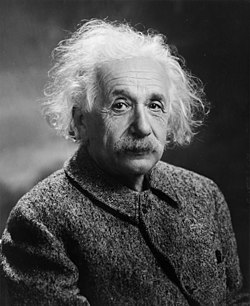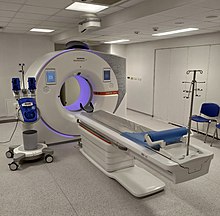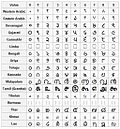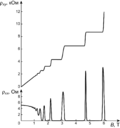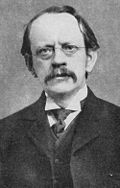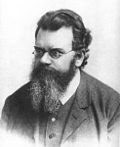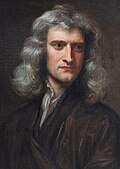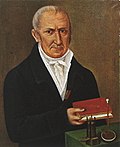Portal:Physics
The Physics Portal


Physics is the scientific study of matter, its fundamental constituents, its motion and behavior through space and time, and the related entities of energy and force. Physics is one of the most fundamental scientific disciplines. A scientist who specializes in the field of physics is called a physicist.
Physics is one of the oldest academic disciplines. Over much of the past two millennia, physics, chemistry, biology, and certain branches of mathematics were a part of natural philosophy, but during the Scientific Revolution in the 17th century, these natural sciences branched into separate research endeavors. Physics intersects with many interdisciplinary areas of research, such as biophysics and quantum chemistry, and the boundaries of physics are not rigidly defined. New ideas in physics often explain the fundamental mechanisms studied by other sciences and suggest new avenues of research in these and other academic disciplines such as mathematics and philosophy.
Advances in physics often enable new technologies. For example, advances in the understanding of electromagnetism, solid-state physics, and nuclear physics led directly to the development of technologies that have transformed modern society, such as television, computers, domestic appliances, and nuclear weapons; advances in thermodynamics led to the development of industrialization; and advances in mechanics inspired the development of calculus. (Full article...)

ZETA, short for Zero Energy Thermonuclear Assembly, was a major experiment in the early history of fusion power research. Based on the pinch plasma confinement technique, and built at the Atomic Energy Research Establishment in the United Kingdom, ZETA was larger and more powerful than any fusion machine in the world at that time. Its goal was to produce large numbers of fusion reactions, although it was not large enough to produce net energy.
ZETA went into operation in August 1957 and by the end of the month it was giving off bursts of about a million neutrons per pulse. Measurements suggested the fuel was reaching between 1 and 5 million kelvins, a temperature that would produce nuclear fusion reactions, explaining the quantities of neutrons being seen. Early results were leaked to the press in September 1957, and the following January an extensive review was released. Front-page articles in newspapers around the world announced it as a breakthrough towards unlimited energy, a scientific advance for Britain greater than the recently launched Sputnik had been for the Soviet Union. (Full article...)
Did you know -

- ... that, in the Large Hadron Collider, protons move at 99.9999991% the speed of light when accelerated with the energy of 7 TeV?
- ... that, at a speed of 299,792,458 m/s, light can travel from the Earth to the Moon in 1.2 seconds?
Selected image -
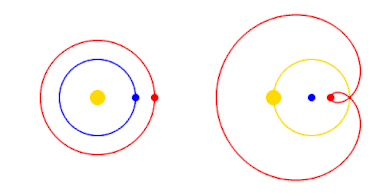
For simplicity, Mars's period of revolution is depicted as 2 years instead of 1.88, and orbits are depicted as perfectly circular or epitrochoid.
The Copernican Revolution was the paradigm shift from the Ptolemaic model of the heavens, which described the cosmos as having Earth stationary at the center of the universe, to the heliocentric model with the Sun at the center of the Solar System. This revolution consisted of two phases; the first being extremely mathematical in nature and the second phase starting in 1610 with the publication of a pamphlet by Galileo. Beginning with the 1543 publication of Nicolaus Copernicus’s De revolutionibus orbium coelestium, contributions to the "revolution" continued until finally ending with Isaac Newton's work over a century later. (Full article...)
Related portals
April anniversaries
- 1 April 1997 – Comet Hale-Bopp at perihelion
- 12 April 1633 – Galileo Galilei's trial starts
- 15 April 1707 – Leonhard Euler's birthday
- 18 April 1955 – Albert Einstein's death
- 22 April 1904 – J. Robert Oppenheimer's birthday
- 23 April 1858 – Max Planck's birthday
- 24 April 1990 – Hubble Space Telescope launched
- 25 April 1990 – Hubble Space Telescope deployed from the shuttle Discovery
- 30 April 1777 – Carl Friedrich Gauss's birthday
General images
Categories

Fundamentals: Concepts in physics | Constants | Physical quantities | Units of measure | Mass | Length | Time | Space | Energy | Matter | Force | Gravity | Electricity | Magnetism | Waves
Basic physics: Mechanics | Electromagnetism | Statistical mechanics | Thermodynamics | Quantum mechanics | Theory of relativity | Optics | Acoustics
Specific fields: Acoustics | Astrophysics | Atomic physics | Molecular physics | Optical physics | Computational physics | Condensed matter physics | Nuclear physics | Particle physics | Plasma physics
Tools: Detectors | Interferometry | Measurement | Radiometry | Spectroscopy | Transducers
Background: Physicists | History of physics | Philosophy of physics | Physics education | Physics journals | Physics organizations
Other: Physics in fiction | Physics lists | Physics software | Physics stubs
Physics topics
Classical physics traditionally includes the fields of mechanics, optics, electricity, magnetism, acoustics and thermodynamics. The term Modern physics is normally used for fields which rely heavily on quantum theory, including quantum mechanics, atomic physics, nuclear physics, particle physics and condensed matter physics. General and special relativity are usually considered to be part of modern physics as well.
More recognized content
Associated Wikimedia
The following Wikimedia Foundation sister projects provide more on this subject:
-
Commons
Free media repository -
Wikibooks
Free textbooks and manuals -
Wikidata
Free knowledge base -
Wikinews
Free-content news -
Wikiquote
Collection of quotations -
Wikisource
Free-content library -
Wikiversity
Free learning tools -
Wikivoyage
Free travel guide -
Wiktionary
Dictionary and thesaurus
Sources
Portals on Wikipedia




